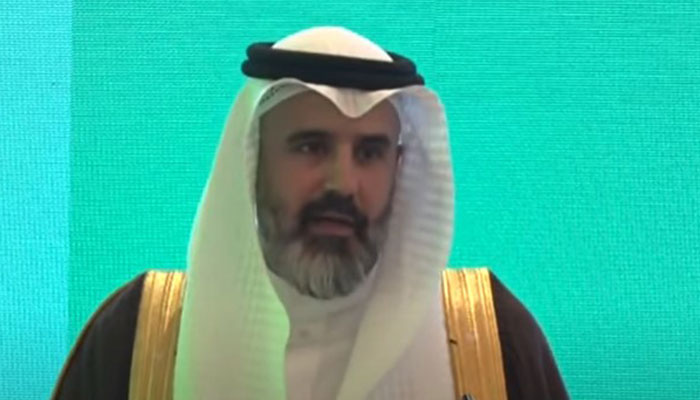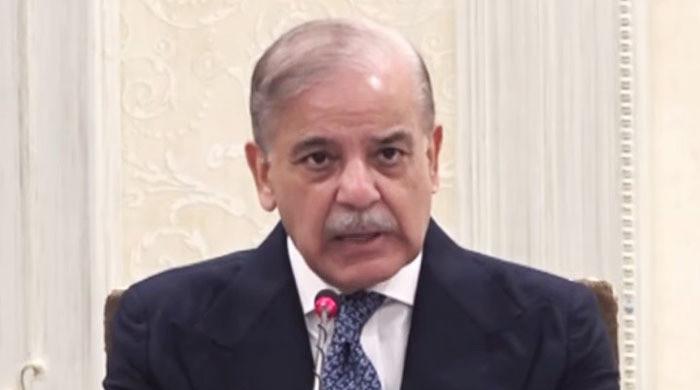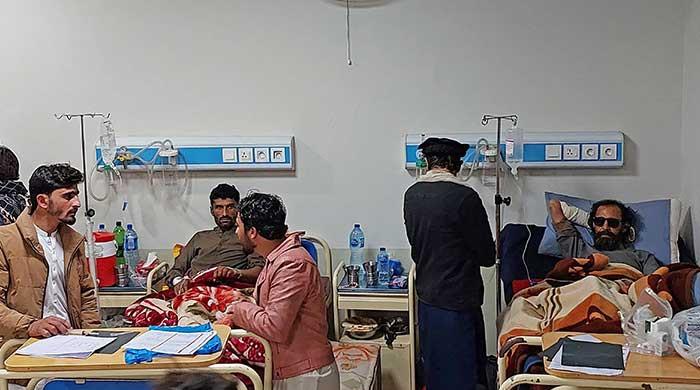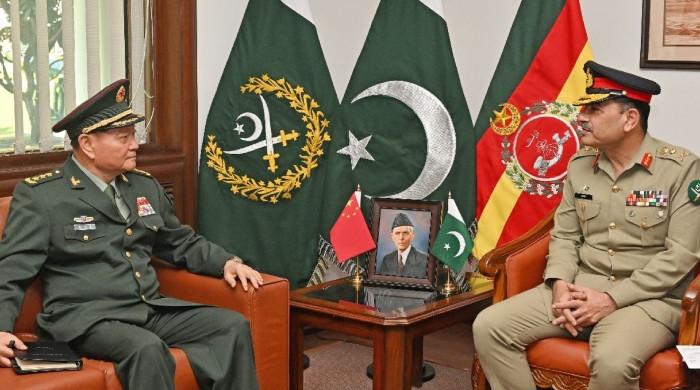Pakistan 'high priority' economic opportunity for us: Saudi investment minister
Pak-Saudi investment moot begins in Islamabad; FinMin expresses commitment to facilitate private sector
May 06, 2024

- Saudi govt giving preference to Pakistan for investment: Almubarak.
- FinMin Aurangzeb reaffirms resolve to facilitate traders, investors.
- He stresses need for continuation of policies for economic stability.
ISLAMABAD: Two-day Pakistan-Saudi Arabia investment conference kicked off on Monday with a positive note from the head of the Saudi delegation who said they considered "Pakistan a high priority economic, investment and business opportunity".
A 50-member high-level Saudi trade delegation led by the Deputy Investment Minister of Saudi Arabia, Ibrahim Almubarak, is in Islamabad to explore various avenues of trade and investment.
The conference has been organised in light of decisions taken during meetings between Prime Minister Shehbaz Sharif and Saudi Crown Prince Mohammad Bin Salman to promote bilateral trade and investment, besides fostering a new era of growth and prosperity for the people of both countries.
Addressing the event, Ibrahim Almubarak said that Saudi companies consider Pakistan "very suitable for investment" and underscored that the delegation's visit will provide opportunities to expand trade relations between the two countries.
"Our visit to Pakistan is a continuation of the previous visit [...] Saudi government and companies are giving preference to Pakistan for investment," the dignitary said.
Highlighting that a large number of Pakistanis are contributing to the development of the Kingdom, the dignitary said that Saudi investors are interested in investing in various sectors in Pakistan.
Earlier, speaking at the opening session of the moot, Finance Minister Muhammad Aurangzeb expressed the government's commitment to fully facilitate the private sector to take the country towards export-led growth.
He said the government is focusing on bringing foreign direct investment to uplift various sectors.
Stressing that the government's job is to provide the policy framework, the finance czar noted that the private sector should lead from the front with the ministers and bureaucrats taking the back seat.
Giving an overview of the country's economic situation, the finance minister said it is on a positive trajectory. The agriculture GDP is growing at 5% on the back of bumper crops including that of sugarcane, rice, and wheat.
Aurangzeb was confident that the country's current account deficit would be less than a billion dollars during this fiscal year.
He said the country’s foreign exchange reserves have risen to $9-10 billion, adding that the local currency has been stable over the last 10 months while the inflation is down to roughly 17%.
He said foreign buying is also coming in the Pakistan Stock Market.
The finance minister said Pakistan is seeking a larger and longer program with the IMF for permanence in the macroeconomic stability and structural reforms. He said the IMF mission is expected in Pakistan in the next seven to 10 days to discuss the contours of the new program.
Reassuring that the government will also accelerate the privatisation process, Aurangzeb underscored the need for the continuation of policies for economic stability.
He also reaffirmed the finance ministry's commitment to facilitate traders and investors.
Meanwhile, speaking on the occasion Minister for Petroleum Musadik Masood Malik emphasised that the private sector of both Pakistan and Saudi Arabia should work together to move towards diversification of economy and value addition.
He said this would bring prosperity to both the country.
Malik emphasised collaboration between the two countries in various sectors including mines and minerals, tourism and agriculture.
He said the private sector of Pakistan and Saudi Arabia should participate in infrastructure development which is pivotal in the way of unleashing the assets and wealth of both the countries.











